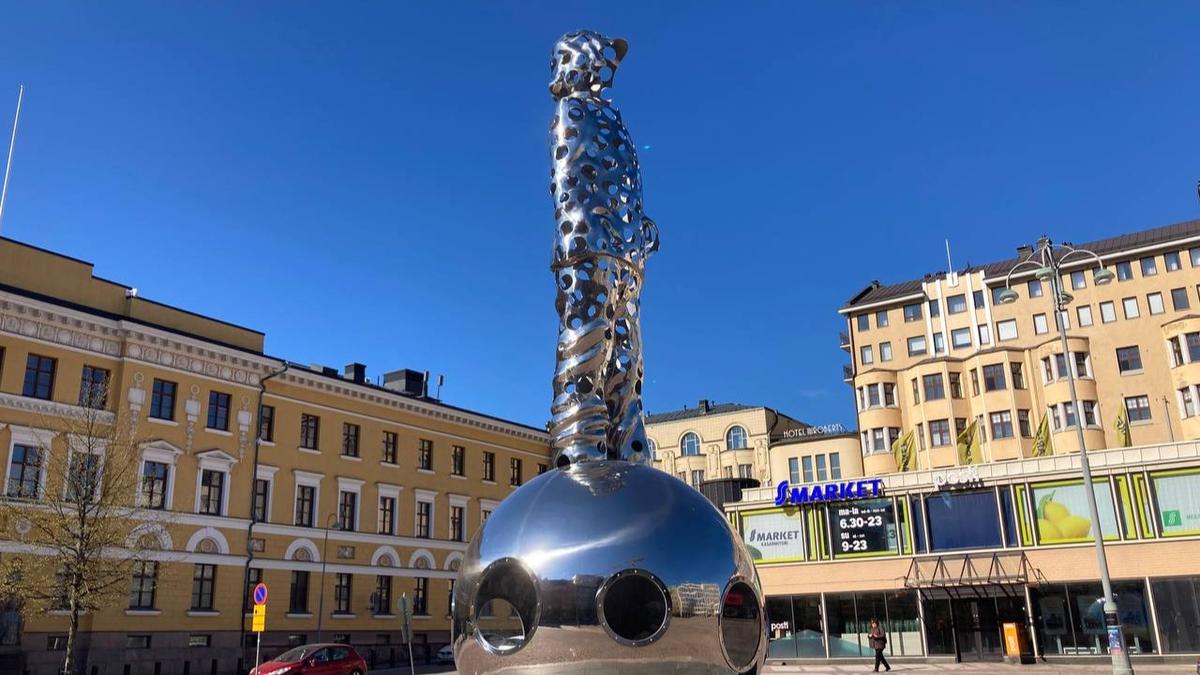Apart from 'denazification', the desire to stop NATO's enlargement east has been declared by Russia among the main reasons to justify its invasion of Ukraine. While it is quite hard to predict Ukraine's future for the time being, the war has already made it virtually inevitable that Russia's common border with NATO member states will increase by 1,300 kilometers at a time. Sweden and Finland, which have been proud of their nonaligned status for over 200 and 75 years respectively, submitted official applications to join the North Atlantic Alliance in mid-May. Journalist Ilya Azar has travelled to Finland to find out how it happened that the share of Finnish citizens supporting their country's accession to NATO grew from 25% to 76% in just a few months, compelling even the Socialists to vote for this decision at parliament.
Picnic Near A Trench
Following the 1939-1940 Winter War between the USSR and Finland, Marshal Carl Gustaf Mannerheim, inspired by the success of the legendary defensive line named after him, ensured the construction of a chain of fortifications along the entire 1,271-km border with the USSR. The bunker in the city of Joensuu was part of this defense system (although never employed in action).
The concrete box of the bunker and a network of trenches are located at an idyllic place on the bank of the Pielisjoki River. Birches, a neatly mowed lawn, an information board, and a barbecue site. A few Russian-speaking city dwellers are grilling meat, sipping beer, and listening to music here late in the evening in mid-May (in Joensuu, the sun sets nearly at midnight at this time of the year).
"I am opposed [to Finland's accession to NATO], because we've lived and communicated pretty well until lately, but now all the ties will be cut off, and it's going to be hard for Russia to do without Finland, and even more so for Finland without Russia," says Nikita, a stocky guy in a baseball cap, who works in the metal processing industry, as he mentioned himself.
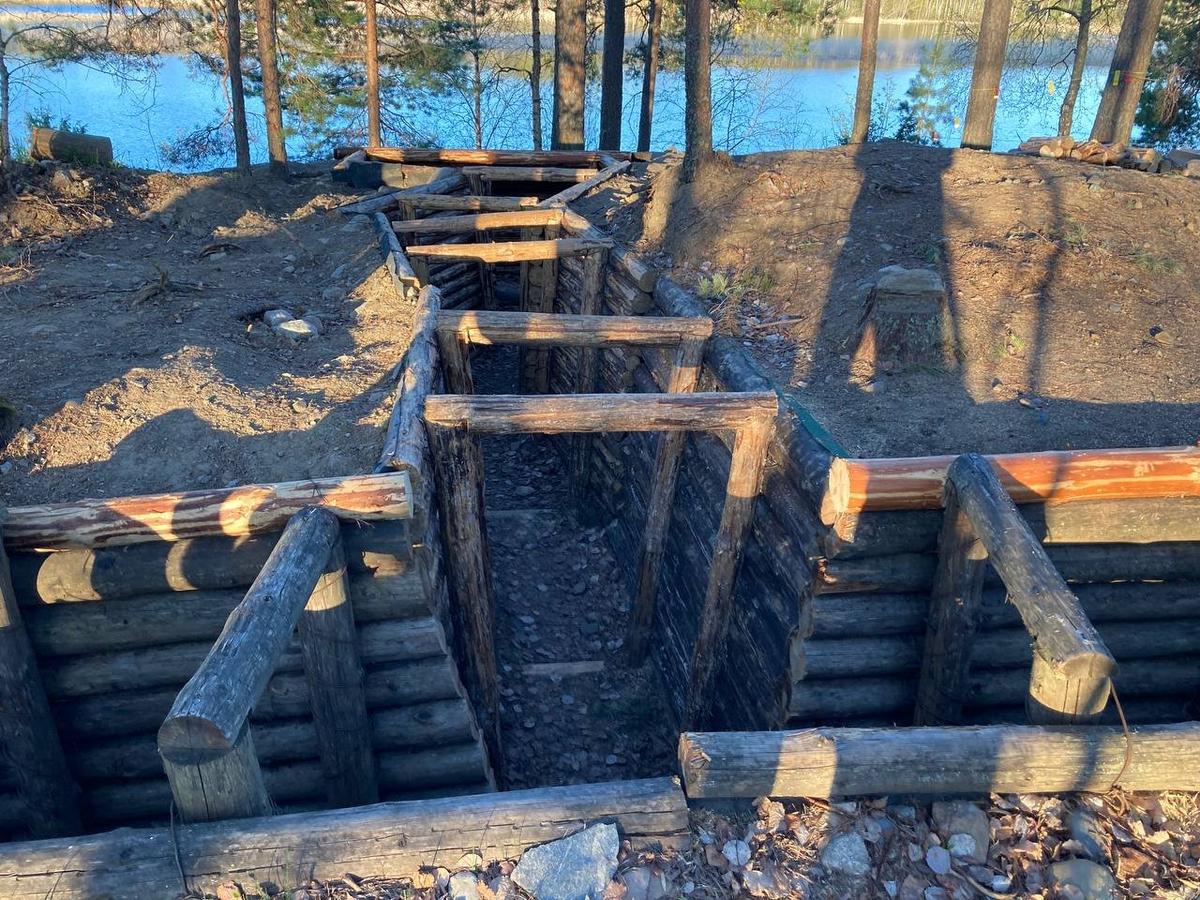
Joensuu. Photo: Ilya Azar
"I can't say that I know a lot about this, but I've always objected to NATO membership, because in that case, Finland would have to send troops to other countries. But now I perfectly understand why Finland is doing this, and I can't say I'm still opposed. But this can certainly affect our relations, which even kind of scares me. On the other hand, you can hardly know what to expect from each new day," Natalia, a blonde college student, joins the conversation.
Another picnicker, Daniil, a tall guy with long hair, argues that Russia and Finland have developed certain logistical ties, which are now in danger. "I have some issues at work: for instance, the plywood factory has stopped working because the supply of timber to Finland from Russia has waned," he said, stirring the charcoal in the fire.
The friends have lived in Finland for quite a long time and associate their future with this country. "Our families live here, and besides, I have nowhere to return in Russia," Daniil says.
"But all of my kin are in Russia, and therefore, I am afraid," replies another picnic participant, Maria.
"Have you had any problems with Finns after the war started?" I ask them.
"My colleagues are Finnish, and nobody started giving me the cold shoulder, but they asked me to explain what's happening," Daniil answers.
"It used to happen some time ago, but not now," Nikita agrees.
"All of my college classmates are Finnish, and I was even kind of afraid to go there on February 25, but they only asked me very delicately how my Russian friends felt. In other words, there was a lot of interest but no negative feelings," says Natalia, who sees Finland as possibly the 'nicest' European country in terms of how Russians are treated there.
The conversation inevitably switches to the views on the war in Ukraine, and it turns out quickly that the friends' attitudes slightly differ. Nikita says he recently reviewed Putin's speech at the 2007 Munich Security Conference and points out that the Russian president had been warning again and again since then that NATO shouldn’t move eastward. While he, as well as Natalia, doesn’t support the war as such, he also argues that the pro-Putin Donbas residents are entitled to separate from Ukraine.
"But how do you know? What makes you think all of them support Putin? How can that be proven?" the blonde retorts.
Another picnicker, a somewhat more mature woman, who has listened to the conversation silently thus far, interrupts the unfolding argument: "We'd better not spoken about politics. It's clear that ordinary people don't need chaos, and I think all of us here are opposed to the war, but the opinions about the reasons could be different. We should drop this topic, or otherwise it might put an end to our friendship."
"It seems to me Russia's problem is that we don't have any ideology. That's bad. What are people supposed to do without an ideology? They're unhappy without one," Nikita changes the subject.
Attempts to find out what common ideology the Finns share smoothly lead to remarks about their constant readiness for war, which was quite predictable, considering the venue the friends chose for their picnic.
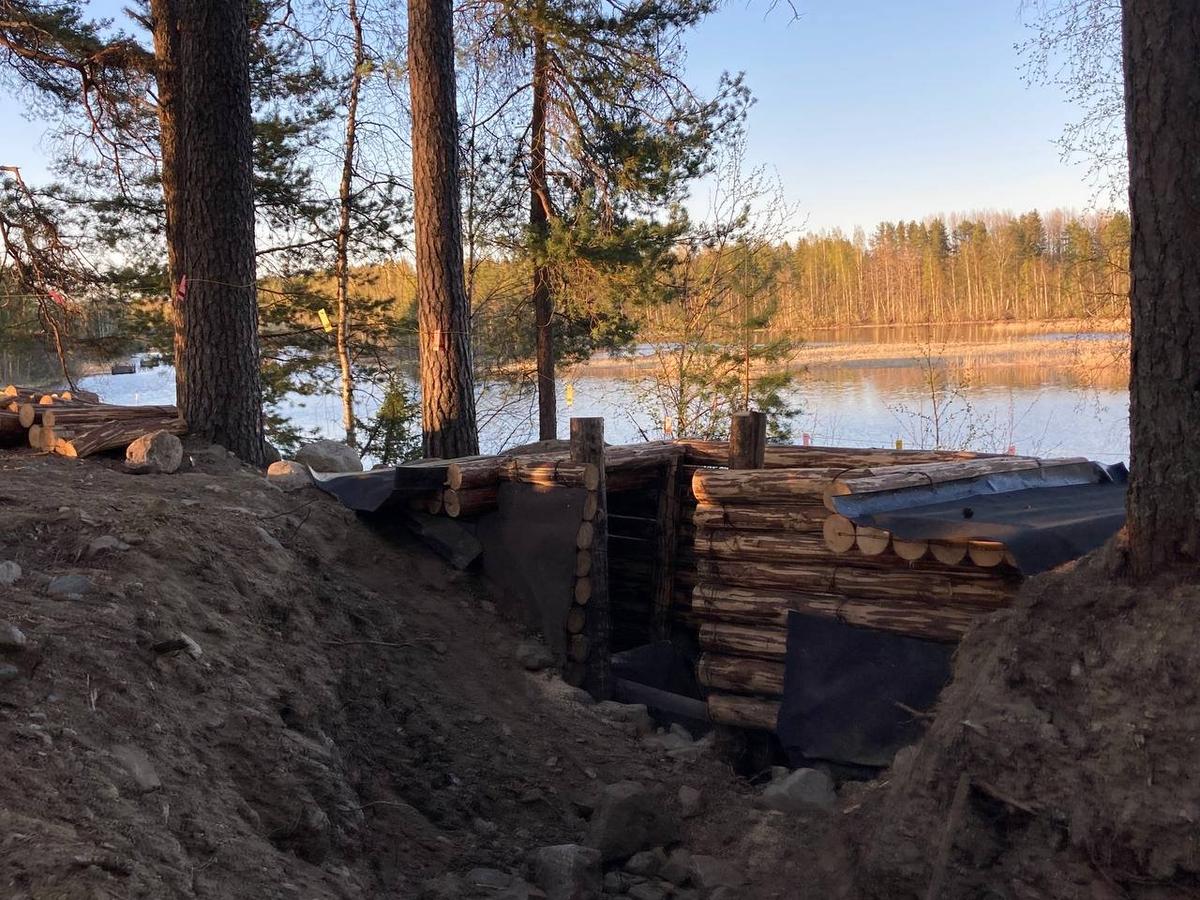
Joensuu. Photo: Ilya Azar
"I came by a store here in February, when the Russians had already seized the Chernobyl reactor, and, naturally, the people were scared, and all of them were immediately eager to defend somehow," Nikita recalls.
"No wonder the Finns are scared: history has its effect. True, 1939 was long ago, but this still sits deep in their memory," Natalia notes.
"The Finns have made their conclusions. Ten percent of them have automatic rifles, and if there's a war here, it's going to be far more horrible than in Ukraine," Daniil says.
"If you ask me, I am afraid, to be frank. I understand that, reasoning logically, [Russian invasion] is unlikely, but there's still some anxiety. Russia is unpredictable," the student concludes.
Patriotic War
"The Winter War is a cornerstone of Finland's statehood. There is no escaping the fact that November 30, 1939 made Finland what it is. There had been Red Finland and White Finland before, but the Reds and the Whites came together to fight the Soviet Union," says Arkady Moshes, program director for the EU Eastern Neighborhood and Russia research program at the Finnish Institute of International Affairs.
On November 29, 1939, the Soviet government sent a note of protest to the Finnish government, alleging that artillery rounds had been fired upon Soviet territory. Soviet troops invaded Finland next day, but what happened afterwards was far from a victorious little war. The Finns resisted fervently and caused huge damage to Soviet personnel and hardware. The war ended in March 1940 with the USSR's partial victory: Finland lost 11% of its territory (including, in particular, the city of Vyborg (Viipuri), but retained its statehood. The Soviet Union lost over 100,000 soldiers killed, which is four times as many as Finland.
By the way, there is no talk in Finland about possibly trying to retake those territories, perhaps because, following the Winter War, Finland sided with the Nazis in fighting the Soviet Union, occupied Petrozavodsk, and then had to pay hefty war reparations to the USSR. Definitely, many in Finland draw parallels between the Winter War and 'the Russian special military operation' in Ukraine, where Russia has also faced bitter resistance and is suffering heavy losses.
"The Winter War is the main event in Finland's history, its heroic episode, the country's defense against a foreign enemy. It's just as important for the Finns as the Great Patriotic War for the Soviet Union. Of course, everyone remembers it, all children are taught about it in school, and therefore, the Finns apply to themselves what happened to Ukraine, and this has become yet another emotional reason, apart from rational considerations," says Vladimir Gelman, professor at Helsinki University.
The main lesson that the Finns learned from the Winter War is the simple truth that no one can fight alone. "The most important achievement was that Finland's leaders realized that they had to sign peace before the USSR destroyed all of our army. Mannerheim understood that it would take the USSR no longer than another couple of weeks to occupy Helsinki. Stalin didn't know it, but we knew that it was too late for aid from the United Kingdom and France to reach us, and besides, we weren’t even sure whether they were going to help at all," says Markku Kangaspuro, a historian from Helsinki University.
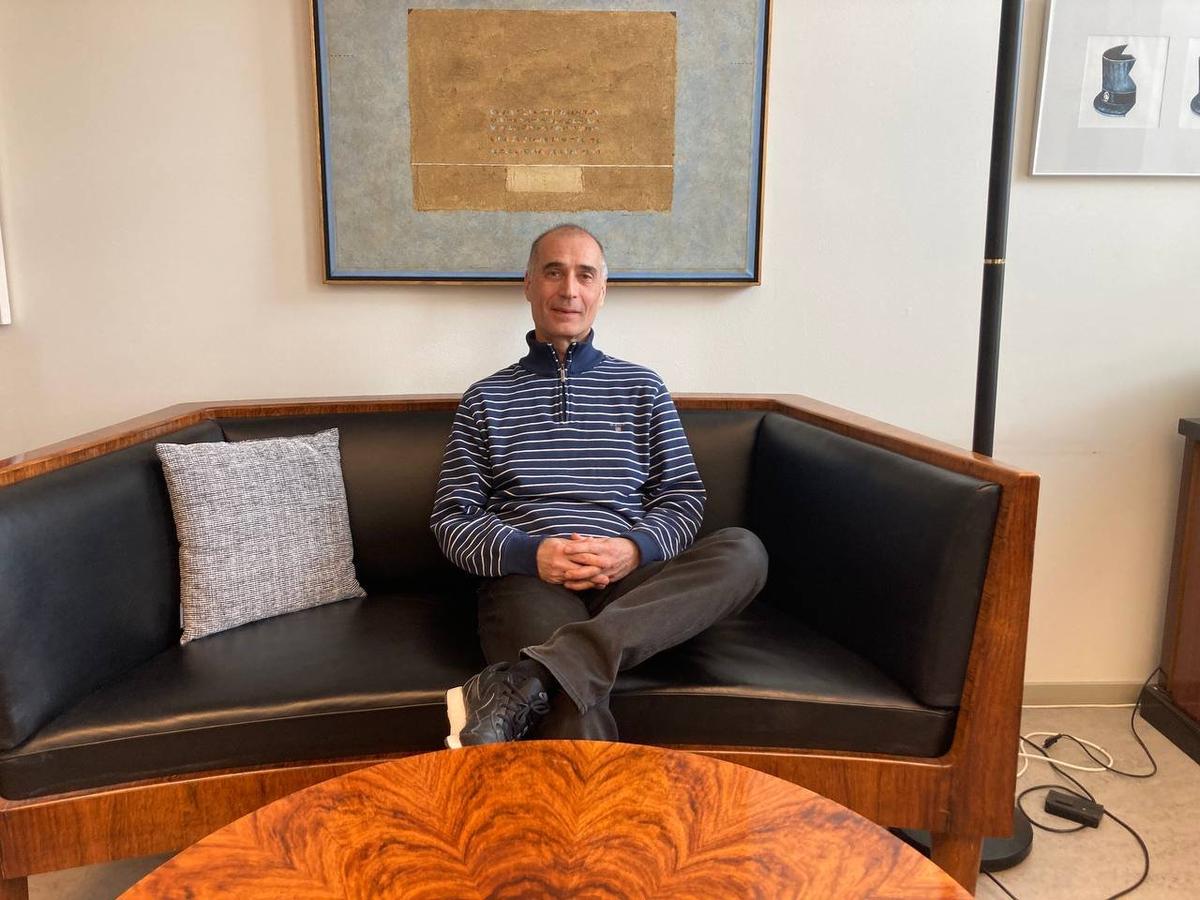
Markku Kangaspuro. Photo: Ilya Azar
Perhaps this is why Finland declared that it would send weapons to Ukraine as early as on February 28.
As Moshes put it, the Finns literally wake up every day with the thought that "Ukraine shouldn’t experience what Finland did in 1940, when it wasn’t helped and had to cede part of its territory."
"You can no longer see it anywhere in Europe, but all main news sections on all main websites here are about Ukraine, and I sometimes have to give five interviews a day. The feeling of solidarity and sympathy with Ukraine is tremendous," Moshes said.
Nonaligned Status
After the end of WWII, in 1948, Finland and the Soviet Union signed the Treaty of Friendship, under which Helsinki pledged not to join any military blocs. "For the entire period of the Cold War, Finland maintained this status, gradually reducing its dependence on the Soviet Union, which controlled literally everything here right after WWII. After all, when your Soviet neighbor hangs over you and can use military force at any time under this agreement, you have to reckon with that," Gelman explains.
"The Soviet Union acted as a de facto veto player when it came to Finland's foreign policy, and the Finnish authorities also had to clear multiple domestic policy decisions with the Soviet embassy at the micro level and with the Soviet leadership at the macro level," he said.
In the 1960s, Moshes said, the Germans even coined the term Finlandization to describe a situation where a country cedes its foreign political sovereignty for the sake of retaining some pillars of its domestic policy sovereignty. "Generally speaking, this word sounds insulting to Finns, and it actually was meant to be an insult when it was invented in Germany. Then this term considerably changed its meaning and started being perceived as a rather positive one outside of Finland: indeed, you've given up something, but nobody invades you and there is no war. Before February 24, 2022, various sorts of Putin-Verstehers had been forcing through this option [as the best possible one] for Ukraine," he said.
True, in the early 1970s, Finland managed to join the free trade area with the European Economic Community (the predecessor of the European Union). "Helsinki began to play the role as a bridge between the Soviet Union and the West, with some dual-purpose goods that could not be sold to the USSR directly being tacitly shipped through the country," Gelman said.
After the Soviet Union's breakup, Finland joined the European Union in 1995. As for NATO membership, this option emerged on the agenda only in the 2000s but was quickly put on the backburner.
"In 2008, the conservative National Coalition Party made NATO membership part of its program, but it was impossible to gain support from other major parties: as pacifists, the leftists were opposed to joining military blocs. And besides, accession to NATO would mean growth in defense spending," Professor Gelman said.
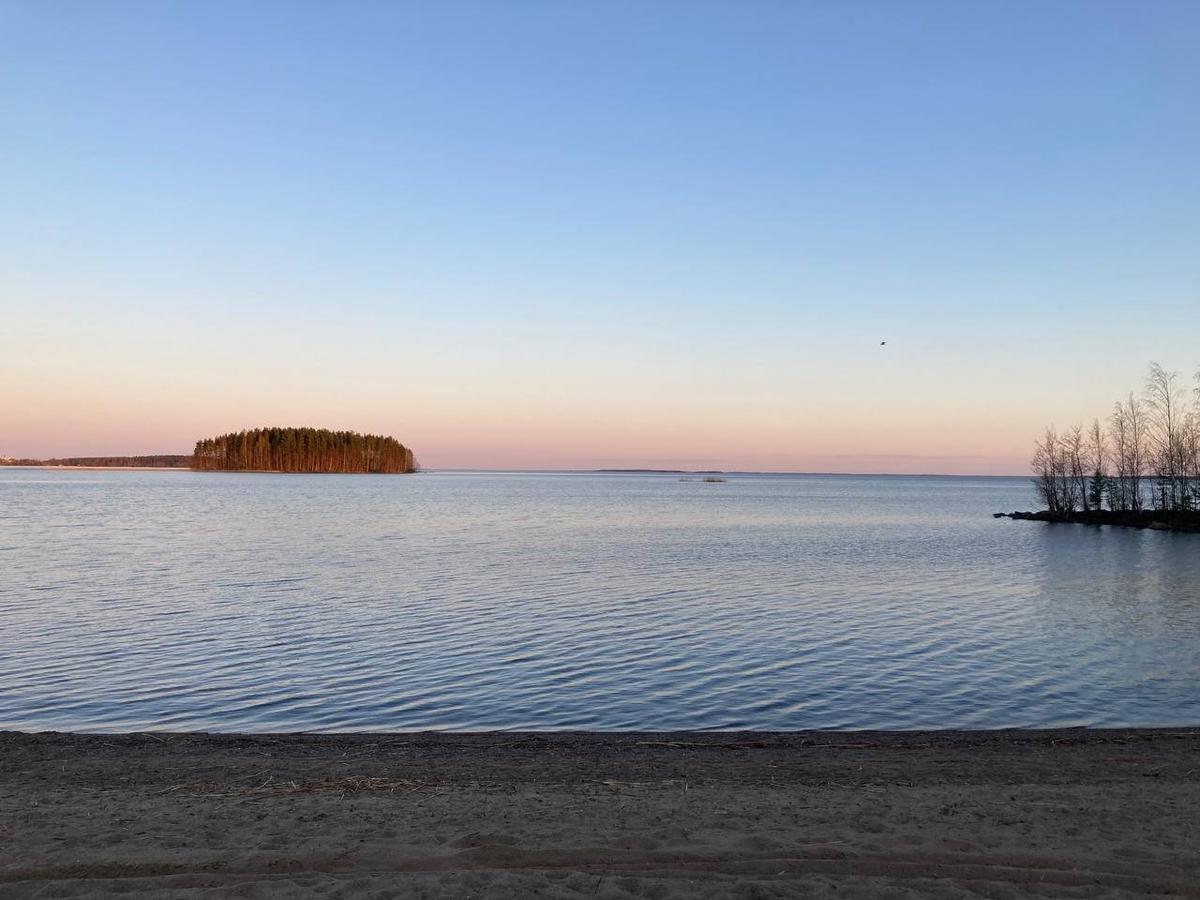
Photo: Ilya Azar
However, the main obstacle has always been that the Finnish public did not favor NATO membership. As Moshes put it, there used to be a 'national consensus' in Finland that, after all, the country was formally entitled to join NATO whenever it wished to or if the geopolitical situation in the region changed.
"The older generations remembered the Winter War and understood that, should there be war, it would be hard for us, and therefore, diplomacy has always been considered the best security guarantee. No matter how politicians and the press tried to persuade the people that it would be good to join NATO, the Finns didn't buy that, which even surprised me," Kangaspuro said.
"However, Putin has managed to do what our politicians and the press failed to," he concludes.
New Reality
However slowly, the Finnish people's attitude toward NATO started shifting precisely because of Russia's aggressive foreign political steps. Changes in the public's moods "transpired back at the time of the Georgian war [in 2008], but it was too short-lived. Following Crimea [in 2014], it appeared certain that Finland's old policy resting on four pillars — namely independent military defense, EU membership, UN, and special relations with Russia — could not guarantee anything any longer," Moshes said.
In his opinion, Helsinki's rush to join NATO was prompted not even by the start of the Ukraine war but by the ultimatum presented by Russia in late 2021. "Nobody in Russia or, say, Germany thought back then that the way all of that was formulated could be applied not only to Ukraine. By saying that [NATO] shouldn’t expand further, Russia definitely meant Ukraine, but the Finns perceived that ultimatum as one targeted in large part at them — and they were insulted. Even though [German Chancellor Olaf] Scholz made actually a conciliatory statement, the Finns took that as an attempt to deny them their sovereign right to decide whether to join the alliance or not," Moshes said, describing the Finnish case as a classical "unintended consequence."
Journalist Gleb Yarovoi living in Finland says that Finns are very proud people, and Prime Minister Sanna Marin's warning that Finland "won't be blackmailed" came home to them.
The number of supporters of Finland's NATO membership began rapidly growing (there were under 20% of them as early as in 2018), and it turned out very quickly that pacifism is not a fundamental value for the Finnish people, considering that they abandoned it in just a few months. "Nobody asked Finland whether to join NATO or not in 1949. The Soviet Union stipulated certain provisions in the treaty, but this was an inevitable and involuntary choice at the time, and several generations have grown since then, which have seen some advantages in this," Moshes said.
In particular, he recalled that Russia in the 1990s tried to persuade European countries to join the EU, but not NATO, arguing that this would "benefit all."
When Finland joined the European Union, it received security guarantees as a country certainly belonging to the West, but at the same time not annoying Russia, Moshes said.
"That was a pragmatic choice. After all, everyone assumed absolutely seriously at the time that this would be enough. And this has been enough, indeed — up to this day," he added.
As "this day" came, Finland was almost struck by panic: people reportedly rushed to buy rifle cartridges and anti-radiation medicines. "They started actively withdrawing cash, as they fear possible cyberattacks on banks. They are worried that the hybrid war might intensify, possibly in the form of some border provocations and airspace violations, which happens sometimes as it is," Moshes said.
Sirke Makinen, a researcher at University of Helsinki, agrees with him. "Nobody trusts anything that Putin says anymore, and nobody knows what he is capable of doing. That's right, it's unlikely that anything will happen, but after Russia invaded Ukraine, you can't be sure of anything. That's what the atmosphere is like here!"
Historic Voting
Kimmo Kiljunen, a member of the Finnish parliament (Eduskunta) from the ruling Social Democratic Party, who looks quite young for a 70-year-old man, has just voted for Finland's accession to NATO. He and I speak on a sofa in front of the entrance to the session hall, and he is obviously thrilled to have played a role in that historic moment for Finland.
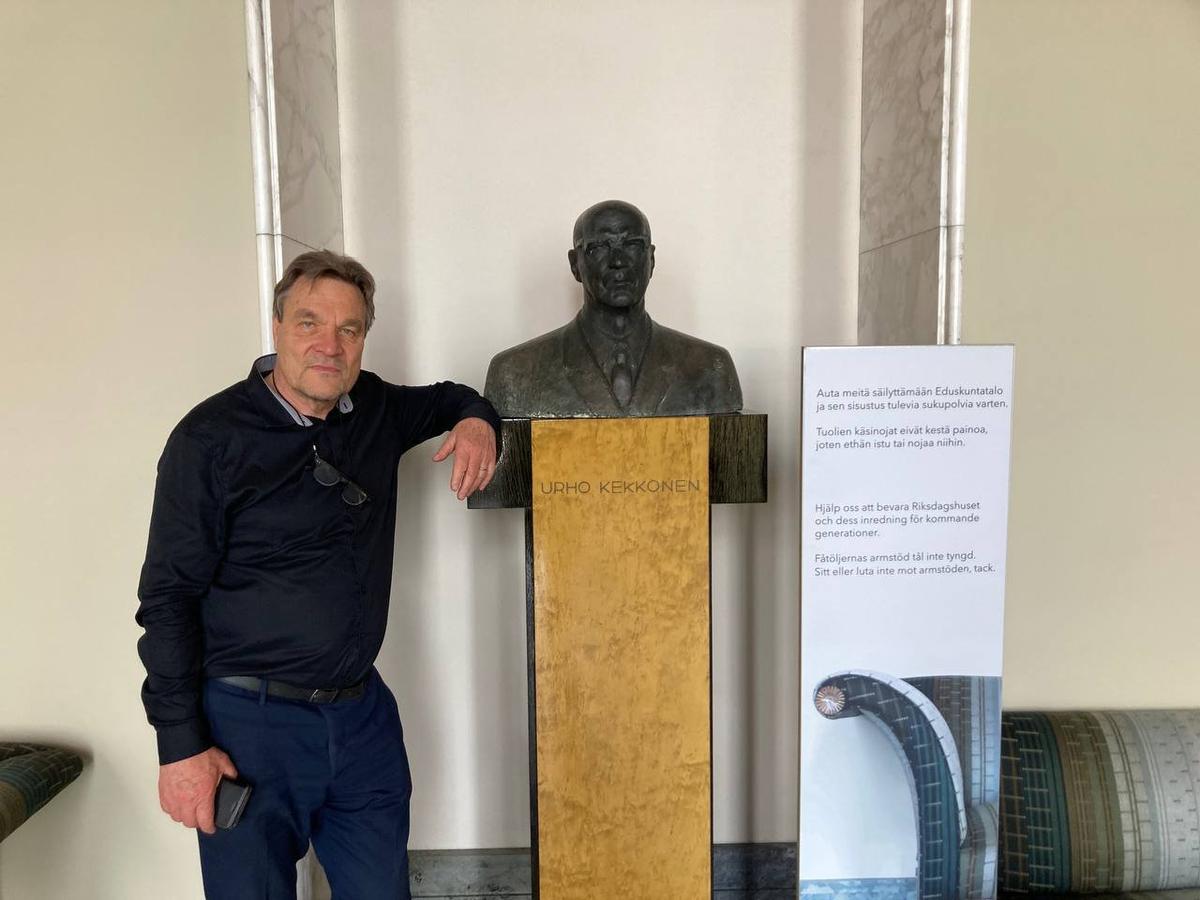
Kimmo Kiljunen. Photo: Ilya Azar
"I am not a NATO fan, but I've just voted for joining NATO," Kiljunen acknowledges to me.
"The main reason is the safety environment, which changed in Europe on February 24, 2022. Fundamentally!" he said.
Shaking his head, he assures me that no one in Finland could believe that the Russian leadership would make that "crazy" a decision.
"They've lost everything! Firstly, if they wanted to put together the former Soviet republics and unify all Slavs, now this will definitely never happen: Ukrainian national identity is now stronger than it's ever been. Secondly, sanctions have been imposed, economic ties have been completely broken, and if the Russians wished to weaken the U.S.' role in Europe, they failed to reach that goal, because Russia is isolated now," Kiljunen said.
Just as most of the other legislators, he understands that there is no imminent military threat to Finland now. He believes, however, that, as soon as the rules of the game in the world have changed, Finland shouldn't miss the opportunity. "After all, Russia is currently too busy with Ukraine, it has concentrated all of its resources there, but after the war is over, Russia would replenish its resources again in a couple of years. And so it's the ideal moment to join NATO right now, as long as Russia certainly won't attack Finland," he said.
When the parliament voted for joining NATO on May 17, as many as 188 of the 200 lawmakers voted in favor, and only eight were opposed. "This was simply impossible to expect," said Moshes, who was particularly stunned by the speed with which the country decided to join NATO.
Indeed, only 26% of the Finnish people had been in favour of and 40% opposed to NATO membership as recently as this past January. "I had answered everyone the same way over the previous decade: public opinion is negative about entering the alliance, as well as most of the political parties. However, because of the events that have happened over the past few months, it turned out very soon that nobody in Finland sees an alternative to NATO membership," says Professor Gelman.
Finnish policymakers and political analysts insist that it is precisely the changes in the people's opinion about NATO that compelled them to submit an application to join the alliance as soon as possible. "As many as 40% of the people supported this in late January and 50% in early February, and still, if not for the war, this could've continued to be so for a decade. However, after February 24, support grew to 64% [currently about 80%], and with such an overwhelming majority in a democratic country like Finland, even the Left Alliance could not afford any longer to say no," Moshes said.
A Social Democratic lawmaker, Kiljunen agrees that the public sentiment has changed because "the Finns have an open wound in their memory, the Winter War."
"But as a NATO member, Finland would inevitably become a party to the conflict in case of a war with Russia, which might endanger its security even more," I point out.
"The reason that we'd find ourselves on the frontline and that this is absolutely not in our best interests is valid. But the situation has changed so radically because of the war in Ukraine that even people like me, who supported nonaligned status on principle, still voted in favor," Kiljunen replies, effectively evading my question.
Indeed, just before the vote at the parliament, Russia warned of "both military-technical and other retaliatory steps," and legislators argued that, just as Belarus a year before, Russia might send so-called refugees toward the border. However, on the whole, few in Finland really fear that the Russian army might launch an invasion anytime soon.
"NATO membership is simply regarded as a more solid security guarantee than any other alternatives. It's just so happened that Russia has never invaded NATO countries," political analyst Moshes says, being openly sarcastic. "But it invaded other countries for some reason. Nobody wants to wake up and hear bombs fall upon them and someone say on the radio that 'this is because they took children away from Russian-speaking families [an issue that former Russian children's ombudsman Pavel Astakhov was particularly obsessed with several years ago], or that Russian-speaking people are being oppressed here and we simply had no choice'. Finnish people would tell you today that we live near a country that chooses to use military force to solve political problems with its neighbors, which didn’t happen before, and that's why it's safer to be in NATO," he said.
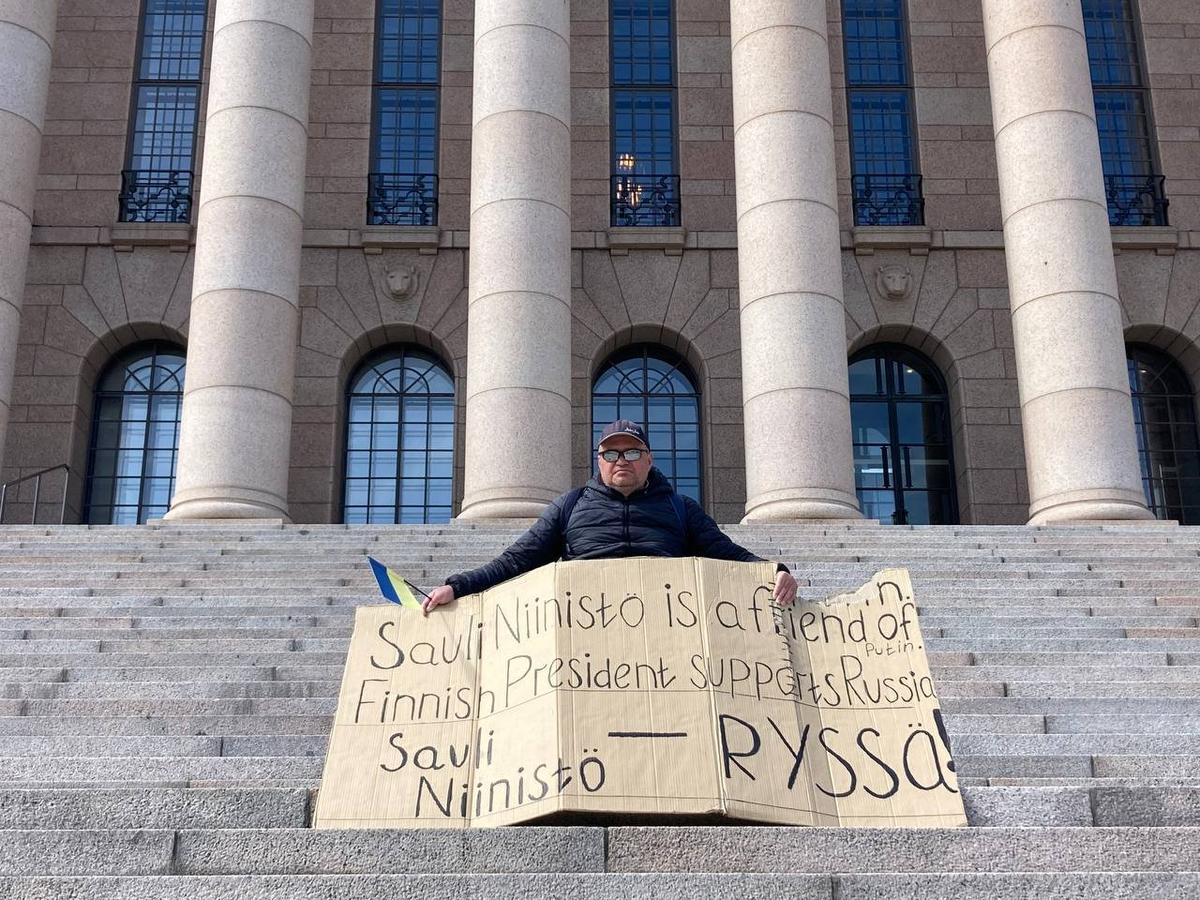
Photo: Ilya Azar
Lawmaker Kiljunen's thought soars even higher.
"We used to say that it's better to have friends nearby and enemies far away than enemies nearby and friends far away. We needed good relations with all of our neighbors. We joined the EU and hoped at the time that Russia would also be there one day."
He recalls Putin's remark that the Soviet Union's breakup was the worst geopolitical disaster of the 20th century.
"I believe the worst geopolitical disaster is the fact that Gorbachev's dream about a common European home hasn’t materialized. If it had, Russia would've abandoned the idea of being a huge superpower controlling everything and would've become an important player on the European arena, while Ukraine would've been its closest ally," he said.
"But Putin believes that it's NATO that has ruined all those dreams by starting to move east," I point out to the legislator.
"Yes, I know, it looked like the West had some suspicions about Russia, but we see now that this was justified! Why speak all the time about NATO's enlargement east? If you ask me, I'd say that it's Finland moving west. And why isn't Russia moving there as well?" Kiljunen keeps on uttering idealistic ideas.
Betraying Oneself
"When I woke up on February 24 and received the first message saying that Russia invaded Ukraine, I didn't quite understand at first whether I was still sleeping or it was for real, but then pictures from Somalia immediately came back," said Suldaan Said Ahmed, an Eduskunta member from the eco-socialist party Left Alliance.
He was born 29 years ago in Somalia in a not very rich family with many children. His mother raised him along with 11 of his brothers and sisters alone. The family moved to Finland in 2008, where Ahmed was trained to be a security guard, but then he took an interest in politics and joined the Left Alliance. He ran for a municipal legislature in 2012 but garnered only 91 votes. That setback did not discourage Ahmed, and soon afterwards, he became a member of the Helsinki city assembly. And when a Left Alliance legislator from the Eduskunta decided to take a job at the city administration, Ahmed replaced him in the national parliament.
"In Finland, we speak not about the American but about the Finnish dream," Ahmed utters what sounds like a memorized phrase.
"This means that, in our country, we give the people an opportunity to achieve their objectives and dreams," he said.
Some time ago, Ahmed's dearest wish was world peace, preferably without America. "When I was a child, I saw civil war, which made me what I am now. I don't like war, I like peace. I want children in each country to be able to grow up in peace and have a good future." This is why Ahmed categorically objected to Finland's accession to NATO before February 24.
"My critical attitude toward NATO was prompted by the U.S. foreign policy. I can't accept what America did in Afghanistan and in the Middle East, and therefore, I thought that not belonging to any military bloc was a very good policy for Finland, which was very good at promoting peace through diplomacy," Ahmed explains to me.
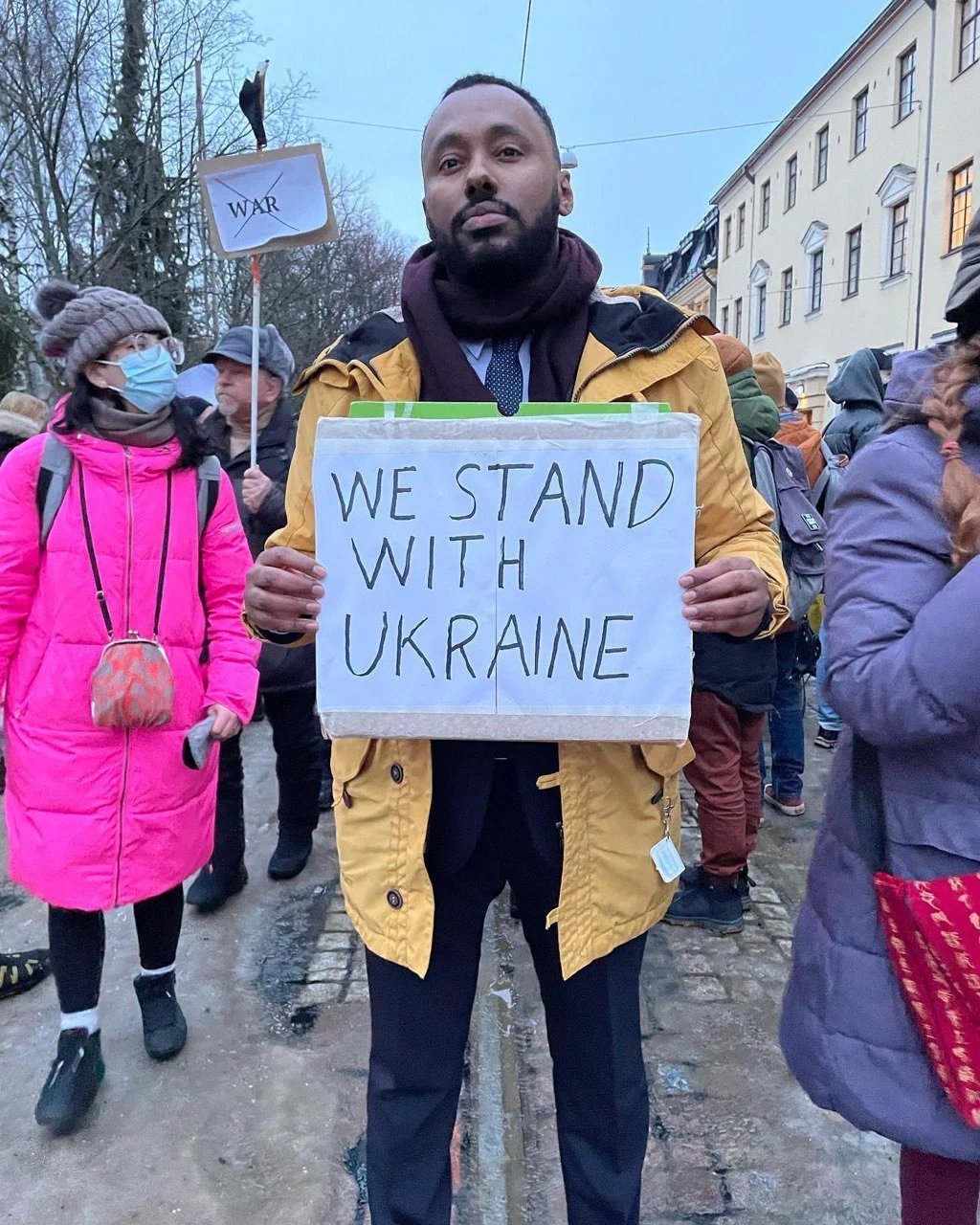
Suldaan Said Ahmed. Photo: Facebook
Voting on May 17 for Finland's NATO membership, Ahmed is still hopeful that its voice in the alliance will be heard.
"We have one of the largest armies among the Nordic countries, we have modern weapons, and therefore, NATO also needs Finland," he said.
Ahmed compared Ukrainians and Palestinians, arguing that "each nation should decide on its future on its own."
"We can't defend human rights of some people while ignoring those of others. I know the U.S. is a great friend of Israel, but I hope we'll be able to promote our values in NATO," Ahmed said.
The legislator is sure that pacifist values "will not vanish" from Finland even now, because they are of "fundamental nature" there. And yet Russia's invasion of Ukraine "has completely changed" Ahmed's attitude toward NATO membership.
"The situation in the whole of Europe changed overnight! Finland is a small country, and I voted for NATO to be confident about our country's safe future. There's no alternative," he explained.
"Is the Russian threat really that big?" I asked him.
"We've seen what Vladimir Putin has done in Ukraine, and I understand that he no longer respects international law and sovereignty of other countries. We can't trust him anymore. Putin doesn’t respect anything but force, and that's why NATO is the best option to get protection and strength. But we are joining not in order to cause problems to our neighbors, and I hope we'll have good and neighborly relations with Russia in the future," he said.
Principled Opponent
For the eight Eduskunta members who voted against joining NATO, that was a hard decision. "I feel relieved after the voting. I was under huge pressure and stress all spring, the discussions heated up, but now we at least can move ahead," says one of the dissenters, Veronika Honkasalo of the Left Alliance.
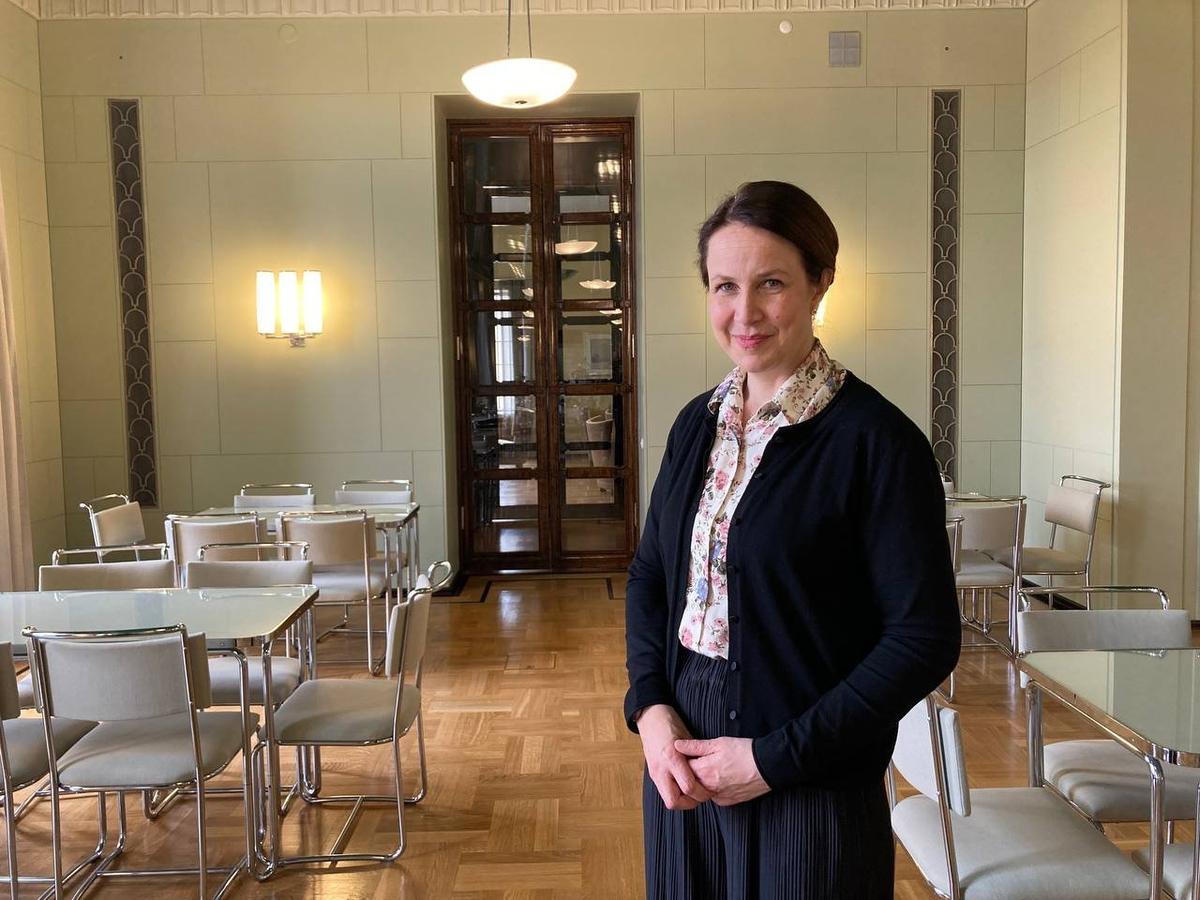
Veronika Honkasalo. Photo: Ilya Azar
For the decision to vote against NATO, Honkasalo, as well as the other lawmakers who shared the same view, has been labeled a Putinist. "Following the voting, social media started circulating the list of lawmakers who voted against. There have been some other horrible things, as well," she tells me.
'But you're not a Putinist, are you?' I ask just to put the record straight.
"Of course I am not a Putinist!" Honkasalo laughs. "Our party has always criticized the totally authoritarian regime in Russia and brought up human rights problems there, although nobody in Finland cared about that. How can I be a Putinist if I support those who find the courage to oppose the war in Russia these days?"
Honkasalo makes it clear that she understands the fears of her compatriots and does not want "to devalue the people's feelings."
"I was also scared, considering that we have a 1,300-kilometer common border with Russia, but I tried to introduce an alternative standpoint to the discussion so that the people could focus more on Ukraine and the Ukrainians," she said.
"Firstly, accession to NATO would mean a fundamental change in Finland's security policy. After all, the idea was that we didn't depart from it even during crises and conflict situations," she said.
"As lawmakers, we had to assess whether the invasion of Ukraine posed a military threat to Finland and whether that was a serious enough change in the situation to assume that only NATO membership would provide us protection for this time," she said.
"Bearing in mind Finland's history and its historical trauma, I understand why the people are worried that they might be attacked as well, but it seems to me, we should keep a cool head," Honkasalo pointed out, adding that now the situation in Finland's border regions is doomed to become more tense.
Another opponent of NATO membership, historian Kangaspuro, also described Ukraine as a special case. "Kyiv has a different history and geopolitical position, and it is of special importance to Russia, but we are not a Slavic state, we are not an Orthodox country with a church belonging to the Moscow Patriarchate, and we have a different language. We were different even in the czarist times: Ukraine was part of the empire, while Finland had autonomy," he said.
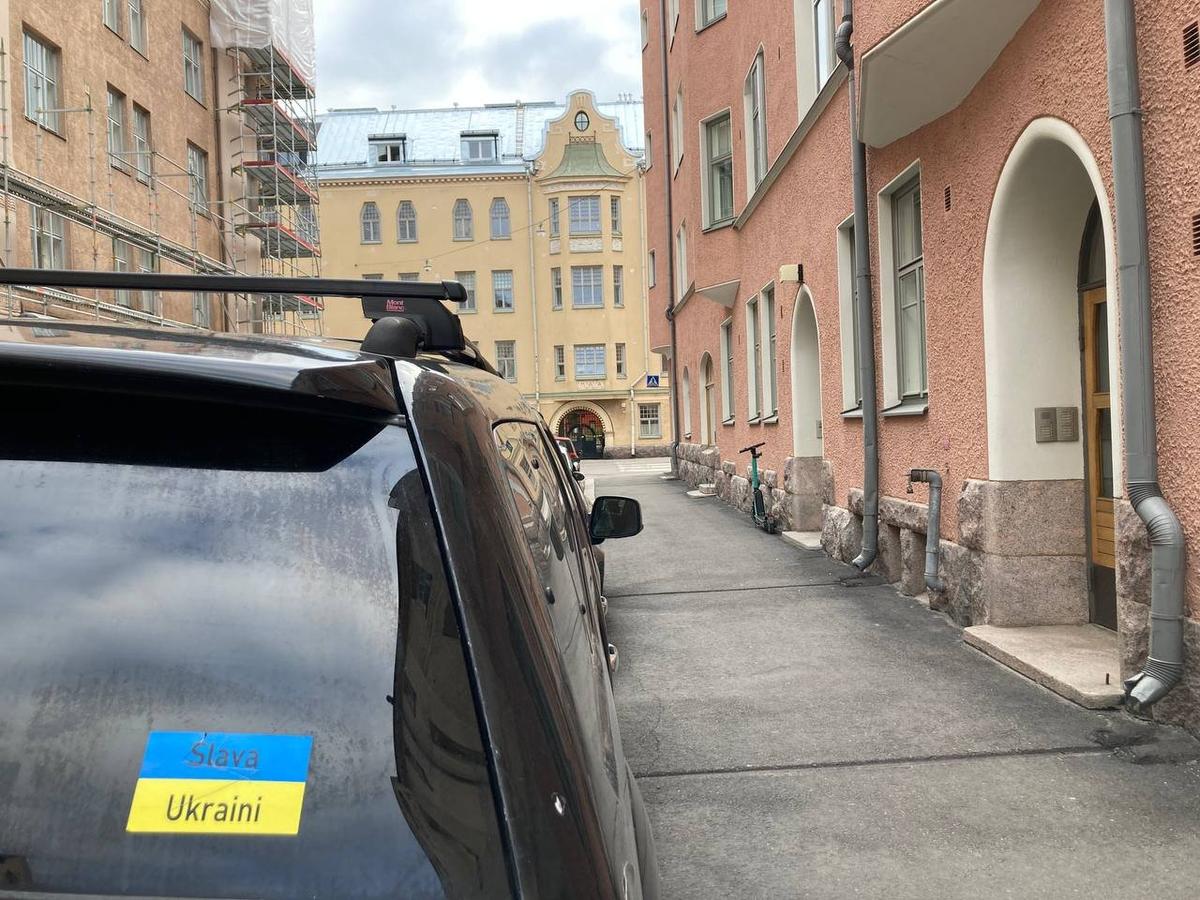
Photo: Ilya Azar
'Perhaps someone might think that Putin would like to revive czarist Russia?' I suggest.
"He has never said that; and besides, the price that Russia would have to pay for invading Finland would be so high that it wouldn't benefit Russia in any way. I am not saying I trust Putin or think of him as a good guy, but there are much more likely victims of his policy than Finland," Kangaspuro replies.
Once Finland joins NATO, this "will make us part of the nuclear weapons system and protect us with the nuclear umbrella, but in the long run, this will reduce global security as a whole. As for other negative implications for the Finnish society, this would increase Finland's militarization, would make disarmament very difficult for us, and would require our involvement in conflicts, because it's unlikely that we would be allowed to remain a passive alliance member," Honkasalo says to explain why she voted against NATO membership.
'Can you propose an alternative?' I ask Kangaspuro.
"There is no good solution without risks. But a possible alternative is retaining nonaligned status with even stronger collaboration with the EU and Nordic countries," he replies.
The Left Alliance itself, a party that has always been opposed to NATO membership, has been divided now. Honkasalo explains this by the fact that even leftist voters have changed their opinion. When the parliament was mulling the issue, the left-wingers were allowed to vote as they wished. Lawmaker Ahmed says that, before the vote, the party had "an excellent conversation," that its members "respect each other's opinion," and that those who are still opposed "are neither lunatics, nor Putinists, but good people who love Finland." The Left Alliance is preparing for a convention in June, at which its delegates are expected to formulate a new stance on NATO.
What makes the situation particularly curious is the fact that the Socialists are currently part of the coalition government. "It's good that the party leadership has decided not to qualify NATO membership as a state issue, for otherwise we would have had to quit the government. As we are in an absolute minority, it would've been unwise to keep sticking to this principle," Honkasalo concludes reasonably.
She argued that "the parliament's democratic decision" should be respected, and now that the decision has been made, it would make more sense to focus on a role the country would play as a NATO member.
Historian Kangaspuro clarifies Honkasalo's point by suggesting that Finland should not be involved in NATO's military interventions unless they are authorized by the UN. "NATO is changing toward becoming less defensive alliance, and this narrows the corridor for our independent foreign policy. Diplomacy is important, because if NATO fights Russia, a war will take place in Finland's territory. Perhaps NATO would win, but Finland definitely won't win, for we can see what happened to Ukraine or Syria as a result of hostilities. Therefore, it's important to discuss what we're going to do in NATO," says Kangaspuro, who is openly opposed to NATO membership.
A Threat to Democracy
Honkasalo says the Finnish media started actively lobbying the idea of joining NATO immediately after Russia's invasion of Ukraine. "Helsingin Sanomat, our largest newspaper, didn't even hide its attitude toward the country's accession to NATO, they openly spoke about that in spring," she complains.
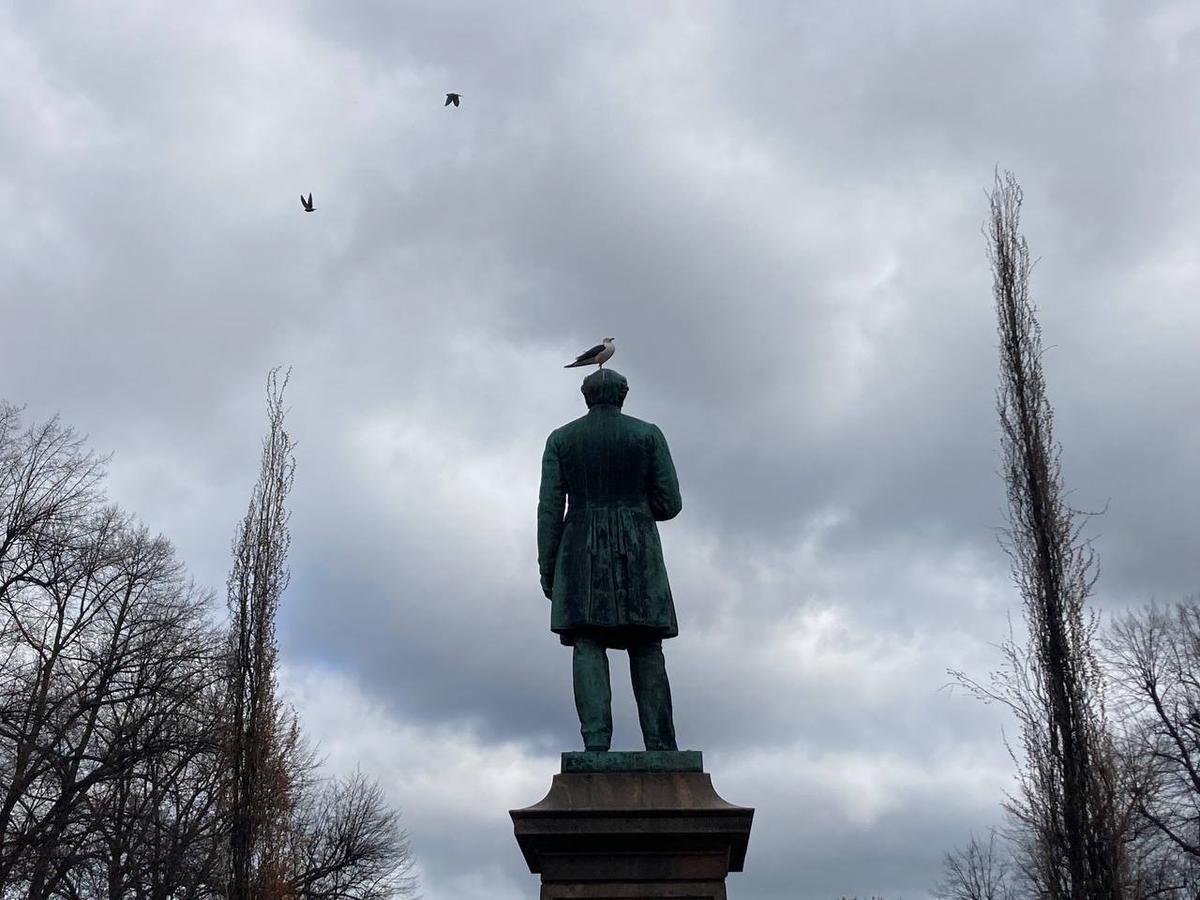
Photo: Ilya Azar
"The rightwing parties presented this as the last step we had to do to become a Western country, which looks weird to me. After all, we've been in the West for a long time," she said.
The Left Alliance lawmaker insists that Finland failed to hold proper debates on the issue that is critical for the country's future, and NATO opponents were simply denied a platform. "There had to be a place for critical voices! In the end, they started inviting me to various media so that I could voice my considerations only during the last week, when it was clear how the parliament was going to vote. There was a scary feeling that criticism was being ignored so as not to disrupt the voting."
She is sure that historians have yet to "investigate" whether the process of joining NATO was "as democratic as it was supposed to be."
Historian Kangaspuro agrees with her, arguing that the way the Finnish media covered the NATO agenda is "a symptom of military propaganda."
"Military propaganda exists not only in Russia but also in the West. Indeed, it's a reflection, and yet it's still propaganda. It's only when it became obvious that the parliament would vote in favor that the media decided it would be bad for Finland's future if we didn't listen to critics and dissenters and tried to suppress critical voices," he said.
Kangaspuro maintained that what happened "has nothing in common with ideal Western democracy" and "looks more like a totalitarian media environment, which Finland criticizes in Russia."
Indeed, a Finnish journalist (she spoke on condition of anonymity) admitted that she has always favored joining NATO. "I supported NATO membership because this is the only political trans-Atlantic alliance, and Finland, as any other European country, should join it so as to influence the way the train goes rather than just watch it passing by."
She says the former "NATO consensus" looked ridiculous to her.
"Any free country can join any organization, you simply lack self-confidence if you have to keep saying that you 'have the right to join'. That goes without saying!" she said.
However, journalist Gleb Yarovoi, who moved to Finland from Petrozavodsk several years ago, insists that there is a reason why Finnish people trust their media so much: they are "of high quality and provide an impartial picture."
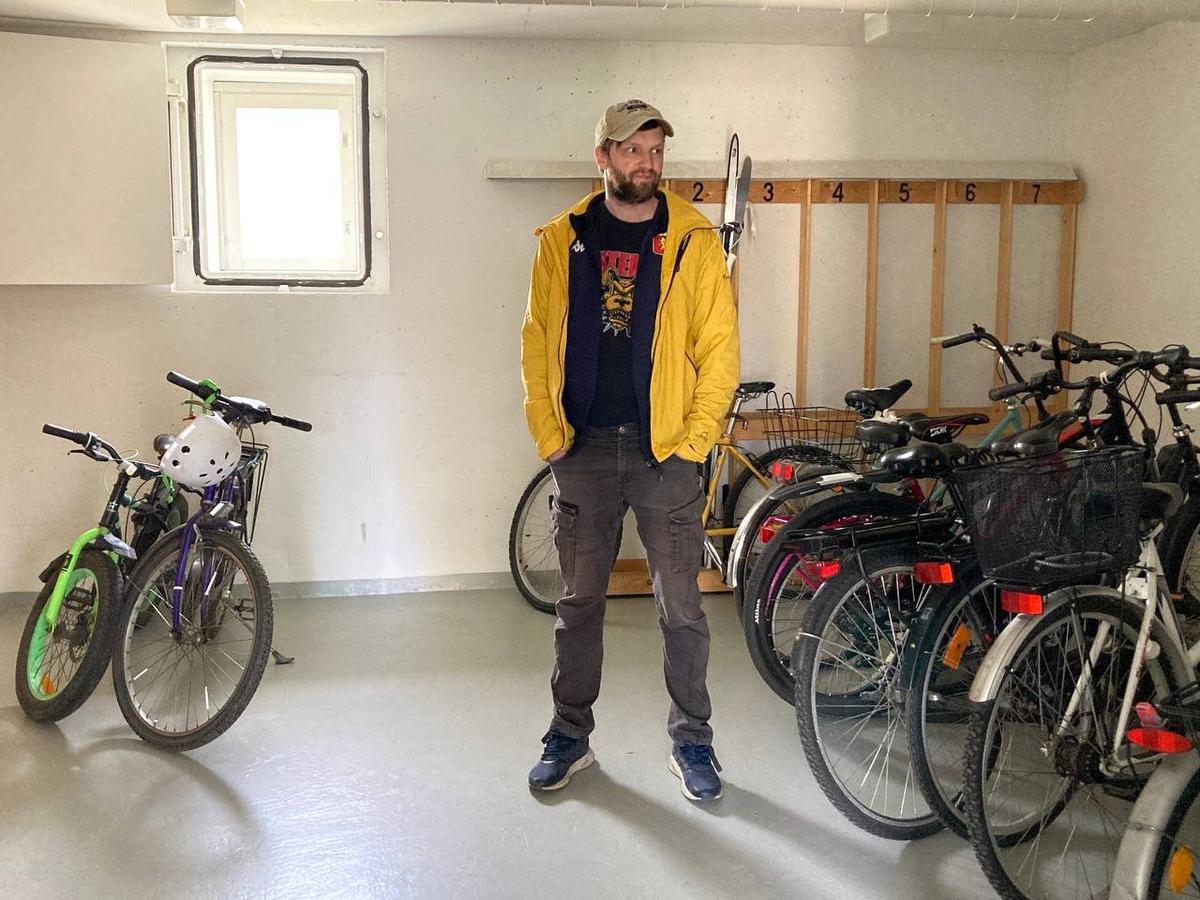
Gleb Yarovoi. Photo: Ilya Azar
"The Finns pay for their television themselves, and they trust it very much. Yle [the Finnish state-run TV and radio company] is routinely at the top among the national brands, which the Finns are proud of," he said.
Some see the decision not to hold a nationwide referendum concerning NATO membership as yet another indication that the procedure might have been not perfectly democratic. Finland's constitution stipulates that the parliament is vested with overall authority, and the public's decisions at referendums are of consultative rather than mandatory nature. And yet the people's approval would have obviously made the decision more legitimate.
"Before the Ukraine war, everyone agreed that there should be a referendum, but seeing the people's overwhelming support, they decided that public opinion polls were enough, although a referendum would enable [the opponents] to conduct an awareness campaign and offer the people a more detailed analysis of all pros and contras," laments Teemu Matinpuro, executive director of the Finnish Peace Committee. He is sure that the decision not to hold a referendum makes Finland look more like Hungary or Poland, which are viewed in Europe as nearly authoritarian countries.
"They're still far ahead of us, but this is the first symptom that such evolution is possible," he said.
Lawmaker Kiljunen strongly disagrees and insists that "there is a lot of open information on what's happening" and "it would be absolutely wrong to say that the process was undemocratic."
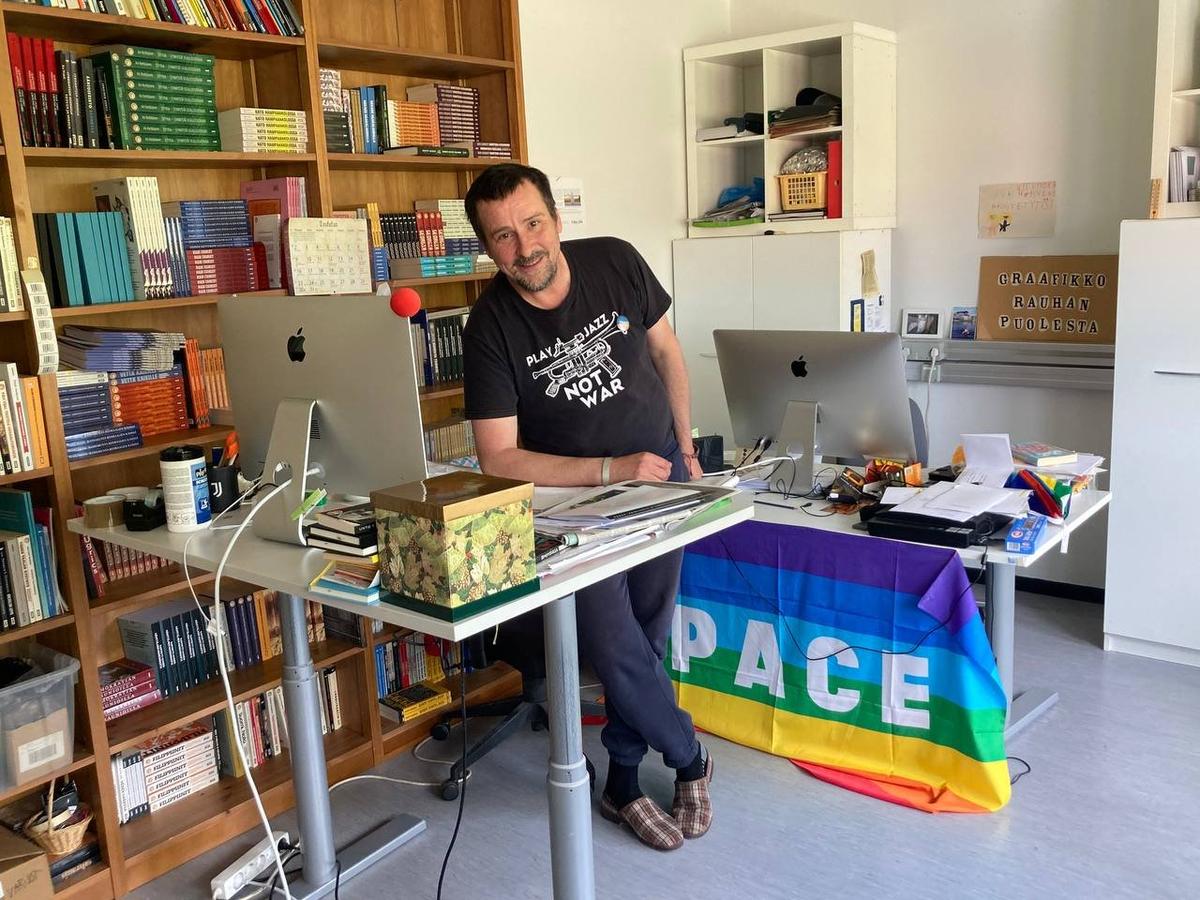
Teemu Matinpuro. Photo: Ilya Azar
However, historian Kangaspuro says that the mainstream media and politicians suggested that Russia, as a fan of hybrid wars, might have influenced public opinion before a referendum, and so it was decided not to hold one for security reasons. "The war is influencing our society, and that's bad for a democratic atmosphere," Kangaspuro says sadly. It has to be admitted, though, that many did not see much sense in holding a referendum while nearly 80% of Finns were in favor of NATO.
Political expert Moshes acknowledges that the Finnish people's attitude toward public opinion surveys is absolutely different than in Russia, and their findings are trusted unquestionably here.
"Sociology in Finland is very good, and surveys are of such a high quality that, as a rule, their findings are accurate to decimals before elections. And now the president and other politicians said the nation has spoken, that is, everything was quite obvious. It's also important that the share of staunch opponents has not been growing lately, while the number of supporters has increased from one survey to another owing to those who were undecided before," he said.
"All media outlets touted NATO, didn’t speak about disadvantages of NATO membership, and didn't let others do that, and now, after the voting, they're so happy as if we won the ice hockey world championship [which Finland hosted exactly in May]. Looks like everyone's forgotten that the war is going on and there's nothing to celebrate," Honkasalo concluded.
For World Peace
A number of Finnish antiwar organizations held a rally against joining NATO on Sunday, May 15, but only a few hundred people attended.
While the Peace Union of Finland did not take part in organizing the rally, it fully supports the idea, its Director Laura Lodenius tells me.
Along with some other peace groups (for instance, those opposed to conscription), the Union is headquartered in the building of a former railway station, about half an hour away from downtown Helsinki by tram. The office is full of antiwar and anti-nuke stickers, and there is a picture on one of its doors of Mannerheim's equestrian monument, with the marshal's figure (but not the horse) digitally deleted from it, and inscribed 'No Soldiers, No War'.
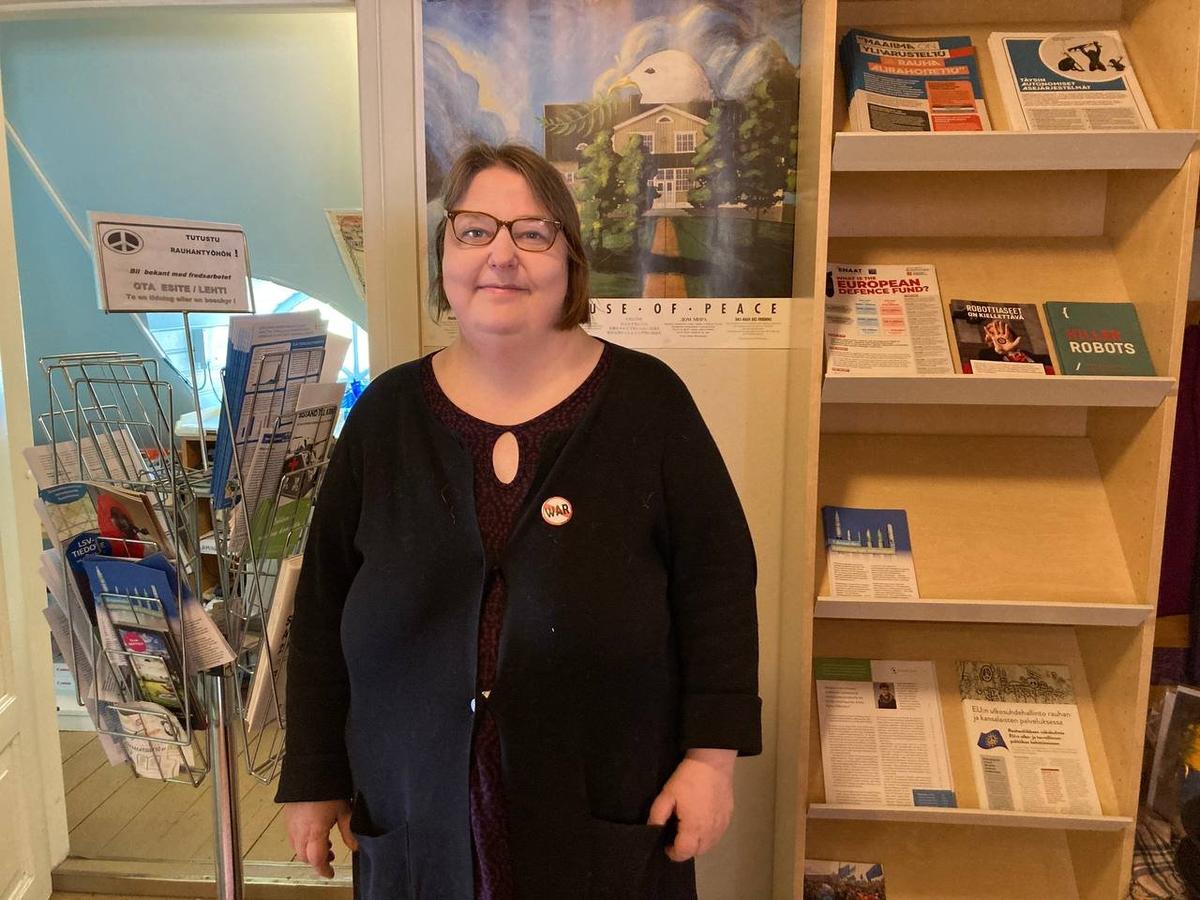
Laura Lodenius. Photo: Ilya Azar
"We have worked for more than a hundred years against wars, nuclear weapons, arms trade, and exports of Finnish weapons. When the war started in Ukraine eight years ago, we organized a demonstration near the Ukrainian and the Russian embassies to urge all countries to abide by international law and seek to arrange a dialogue rather than confrontation," Lodenius said.
Before the war, people in Finland had started taking some interest in the matter only after Crimea became part of Russia, but then they quickly switched to something else, and as for human rights in Russia, "no one cares at all," she said.
Parliamentarian Honkasalo also suggests that the Finnish nation is excessively concentrated on itself. She recently visited Lviv to attend a conference of representatives of leftist parties from all of Europe, but when she came back, all she was asked at home was what the Ukrainians thought about Finland's accession to NATO. "Our response to Russia's invasion of Ukraine looks egoistic," she said.
Lodenius is frustrated by the fact that the Finns decided to join NATO that quickly and irreversibly.
"This was tragic for peace organizations, because we have always been against any military alliances. As a matter of fact, after the Warsaw Pact broke up, we hoped that NATO would also break up soon," she said.
The Peace Union tried to inform its compatriots that, after Finland joins NATO, they will start being sent to other countries as part of joint military forces, that the alliance includes Turkey, whose leader Recep Erdogan is "not very nice man," that it is more important to spend money on opposing climate change or on vaccines for all countries than on weapons, that Finland cannot resist America's clout inside the alliance — but nobody heeded that, Lodenius says.
"Most of the lawmakers believe they have done what their constituencies wanted from them, but perhaps some of them manipulated the discussion. After all, over the two years of coronavirus that the people spent at home, they became too preoccupied with social media, where this populist express train was launched," Lodenius says.
She hastens to remark that she does not see any "conspiracy" here — that's just how the circumstances were.
"It's become a mantra in Finland and the whole of Europe: 'Everything has changed in the European security policy after February 24.' But I've been in the peace movement for 30 years, and I don't think a lot has really changed. There have always been militaristically-minded politicians everywhere, who prefer to approach problems precisely from a military and geopolitical perspective. There's nothing new here!"
Having said that, Lodenius mentions dozens of thousands of people killed in Yemen and Afghanistan and collaboration between political leaders and Saudi Arabia.
She insisted that the antiwar movement in Finland is against NATO membership because nuclear weapons are becoming really dangerous in the hands of unpredictable people.
"Some primary school student even told me the other day, 'If the Ukrainians had retained nuclear weapons, nobody would've invaded them', but the nuclear deterrence idea was that there are responsible leaders who understand the risks. And if the other party to the Ukraine conflict also possessed nuclear weapons, I would certainly not feel more secure," she adds.

Photo: Ilya Azar
Teemu Matinpuro, executive director of the Finnish Peace Committee, comes to the interview with me in a T-shirt inscribed 'Play Jazz, Not War', and he also complains that all peace organizations are routinely branded as Putinist. "We're used to this, because our committee was part of a system created following WWII and oriented toward the USSR. But everything changed in the 1990s, and most of our contacts are with Russian opposition and trade unions, we publish Novaya Gazeta stories in our magazine, and yet we are seen as Putinists," Matinpuro laughs.
Some even want the Finnish Peace Committee to be deprived of public funding because of a complaint from one of the conservative parties, which alleged that it supports Putin, he said.
"Those conservatives themselves have attended conferences with United Russia and cooperated with Rosatom on nuclear power plants, and so perhaps it's them who should be stripped of government support," he laughs.
Matinpuro is also opposed to NATO because of nuclear weapons and militarization of Finnish society. What is more, by the end of our hour-long conversation, he starts uttering remarks that can well be seen as a pro-Russian view on the conflict in Ukraine, such as that "there are civil war elements [in Ukraine], which the West doesn't understand" and that "Zelensky realized quickly that, as president, he could not act freely enough because of the nationalists and that he doesn't have full control of the Security Service and the army."
"Over the past three years, the Ukrainians had been interested in prolonging the hostilities along the line of contact [in Donbas] because they needed the war to continue. It was dangerous even to talk about a peaceful solution to the eastern Ukraine problem, for you could've been attacked for that. The so-called DPR and LPR accounted for 70% of civilian casualties. The role of neo-Nazi groups in Ukraine has been denied, but they are the best organized and financed political organizations in Ukraine, and the Roma and other minorities are suffering from them," he said.
"But you don't justify the Russian invasion, do you?" I am a bit bewildered.
"No, of course not! We absolutely denounce it! And definitely, we are helping Ukrainian refugees," Matinpuro exclaims, flinging up his hands.
Full Combat Readiness
If you want peace, prepare for war, as the well-known saying suggests, and Finland has always taken a possible threat from Russia seriously. "Definitely, the Finns have been prepared to defend the country on their own. The country has quite a big army by European standards, it has general conscription, and reservists are regularly called up for military camps. The people here have been trained to be able to defend their country. Over the decades of the Cold War, the Finns lived with the understanding that the Soviet Union might invade again in some circumstances," political expert Gelman said.
Journalist Gleb Yarovoi, who has lived in Joensuu, a city some 50 kilometers away from the Russian border, for nearly four years, says that Finland possibly ranks first among European countries in terms of the number of citizens trained to defend their country.
"I have a friend in Turku, who regularly runs in the fields during military training camps, and he has always told me that, any way you slice it, all targets set during those exercises are always presented as some mysterious enemy from the East. Nobody identifies it directly, but everyone is well aware whom they are trained and prepared to oppose," Yarovoi said.
The Finnish armed forces number only 23,800 people, but considering the huge reserve force (254,000 people), Finland is the 10th most militarized country in the world.
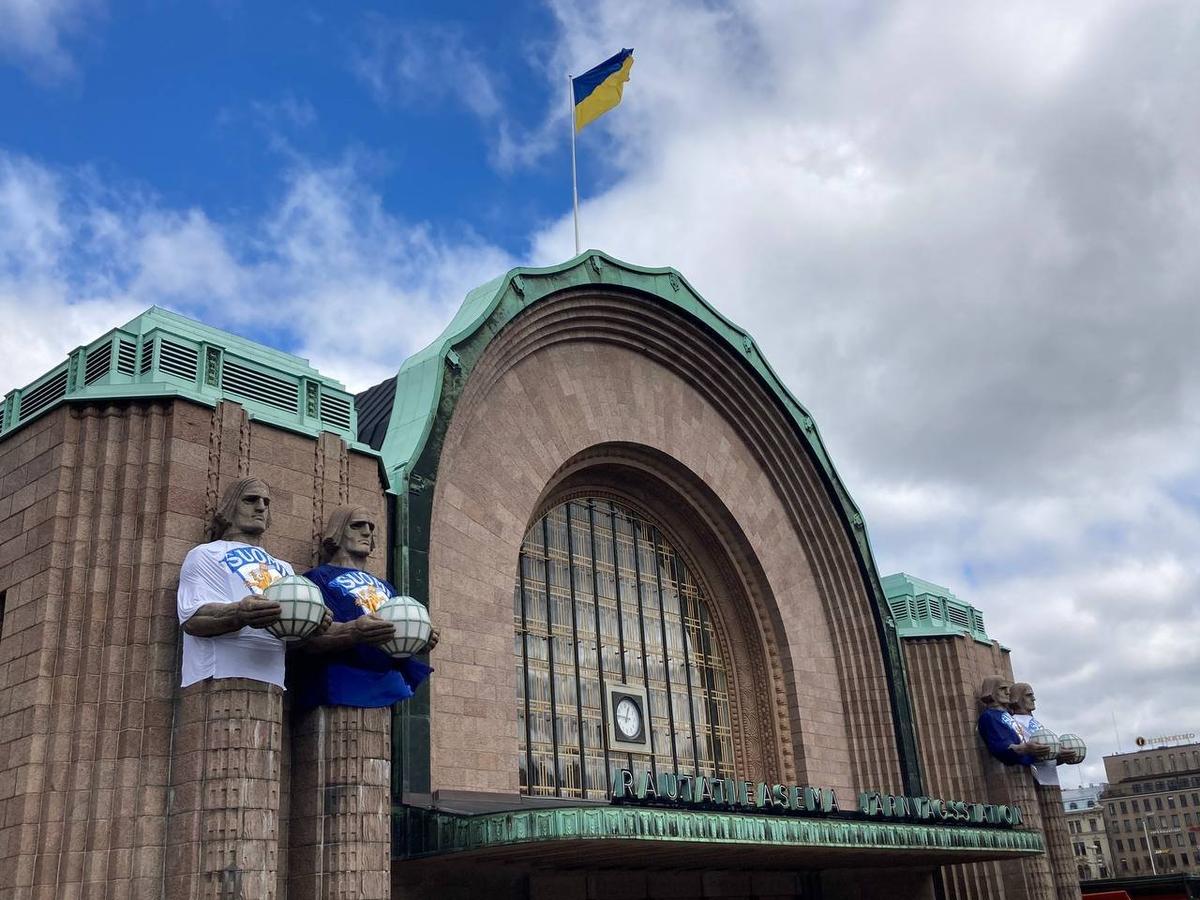
Photo: Ilya Azar
Finnish citizens reacted to Russia's invasion of Ukraine almost identically. "Following the guidelines, the people started stocking up on food, coal, firewood, gasoline, water, and whatnot. The senior generation spoke exclusively about how to prepare for a possible war or a nuclear strike tomorrow," Yarovoi said.
Almost each apartment block in Finland has a bomb shelter, although residents mostly use them as storerooms. Yarovoi shows me his bunker located not in the basement but in a detached cabin near the entrance to his apartment block. Its walls are made of thick concrete and it is equipped with an airlock and a ventilation system. Yarovoi and his neighbors park their bicycles in the shelter. "They regularly test the air raid alert system on the first Monday every month, with sirens ringing all around the city. Companies and organizations arrange various kinds of exercises from time to time," he said.
Yarovoi understands that, if necessary, all Finns will go fighting. "I hugely respect the Finns, for it seems to me all of them have the backbone for that, even the utter [sluggards]. I can see that the people are ready to fight, which I absolutely can't say about my Russian friends. I just can't imagine that they would take up a rifle and go defending their homeland," says Yarovoi, who seems to be ready himself to defend Finland with arms in his hands.
"I've never held anything more serious than a slingshot in my hands, but perhaps this country has given me more over the past four years than my homeland over the previous 38 years. I understand that, if Russia invades Finland, it would be my enemy, although I hope this would never happen," Yarovoi said.
As Moshes says, while the Finns have always been prepared for war with Russia, they certainly have never sought to advance that moment. "A friend of mine told me, 'If we have to fight, of course we'll fight. But it's stupid to assume that we'll inevitably fight Russia, because I can make money there today'. Unlike the Baltic countries, which have always seen Russia as a foe and thought that a conflict is inevitable, it's different here," Moshes said, habitually referring to Russian forces as "our" later in the conversation.
I press him to say whom he considers himself after having lived in Helsinki for 20 years, and Moshes, who chose a tie with yellow and blue stripes for our interview, replies smilingly, "All are our people for me, but I still consider myself Russian. After all, I am not of Finnish descent. But I am a citizen of Finland, my son has served in the Finnish army, and my younger son is yet to serve."
Disconcerted Emigrants
"We should not isolate the Russians because only the Russian people can change the system," says Kiljunen, a parliamentarian from the ruling party.
Historian Kangaspuro shares this view: "Economic pressure is one of the most legitimate ways to influence Russia, because no third world war can be allowed, but isolating Russians and freezing cultural and academic ties is quite a different thing. I don't think this is wise."
He reasons that, if the entire Russian nation is humiliated, the world might see a replay of Germany following the Treaty of Versailles.
Academic and cultural cooperation between the two countries has already been limited, although, unlike Estonia, Finland is not refusing to admit Russian students. At least for now. "We cannot completely isolate ourselves from each other, but we should be very cautious. There are important issues concerning environment protection and education, but as long as the war goes on, no cooperation is possible. I don't think, for instance, that there can be any exchanges with colleges whose chairpersons have signed a letter supporting Russia's actions in Ukraine," says Sirke Makinen from Helsinki University, where numerous Russians are still working and studying.
"We had a chance to help create civil society in Russia in the early 1990s, but people weren’t particularly enthusiastic about that, all they needed were money from oligarchs, and now everybody asks where Russian civil society is," Teemu Matinpuro says regrettably.
The Left Alliance has repeatedly proposed supporting people fleeing Russia, but this initiative has not produced any practical results thus far.
"I think we should make it easier for Russians [facing persecution at home] to arrive here, but all discussions have so far been focused on Finland's accession to NATO," Veronika Honkasalo says.
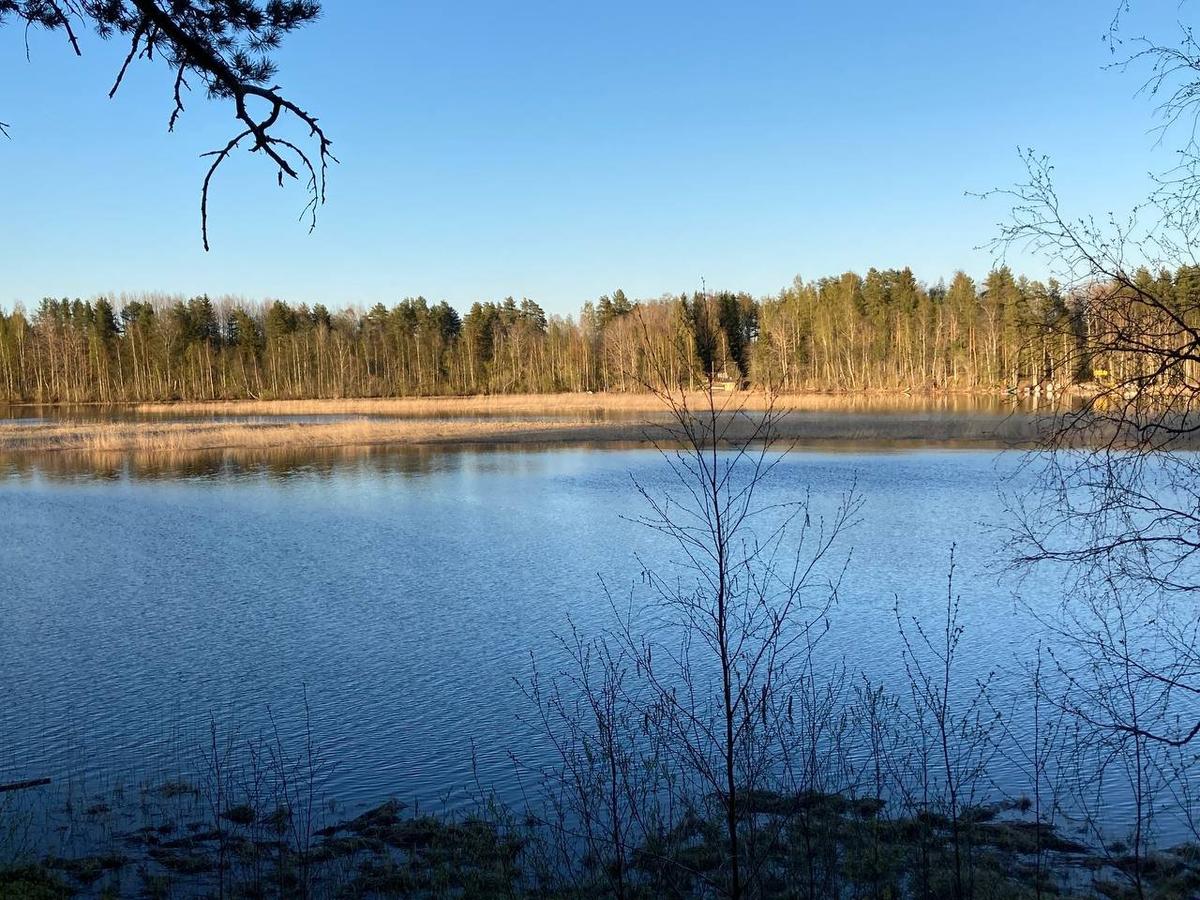
Photo: Ilya Azar
Anyway, some prominent Russians have left for Finland to escape reprisals and a lack of freedom. Playwright Mikhail Durnenkov moved to Finland back in March, and then he wrote an antiwar Facebook post, wishing the Russian army "a complete and crushing defeat," after which he was expelled from the Union of Theater Workers.
Durnenkov left for Finland because he had a valid contract with a Finnish theatre for writing a play, with which he was permitted to cross the border by land. The organisation Artists at Risk provided him with an apartment in Helsinki until the end of the summer, his child goes to a Finnish school, and he is planning to receive a permanent residence permit to be able to travel to Russia and back.
He admits that the Ukraine war is having its effect on society. The Cultura foundation, which helps Russian-speaking immigrants better adapt to living in the country, regularly arranges "crisis dialogs", during which people sit down in a circle and share their problems.
Durnenkov says that some Russian women who have long been married to Finns and fluently speak Finnish have started to complain that their family lives have changed dramatically after the war started.
"One of these women is looking for a shelter, because her husband has made a habit of getting drunk, playing Finnish military anthems, and trying to beat her. Another is getting divorced, because her husband is following her everywhere and speaking to her as if to Russia. He's stopped looking at her as his wife but sees Putin and the Russian government in her. In other words, everything is boiling here," Durnenkov said.
That said, he himself is feeling great in Finland and praises the local theatrical life, although he admits that it's still too far from that in Moscow or Berlin. As for Russia, Durnenkov is sure everything is going to be terrible pretty soon. "It seems to me the system won't come to rest until it makes sure that you are ready to speak from a rostrum that all Ukrainians must be sent to gas chambers. The cultural environment will stagnate," he says, citing a new production of the musical Cabaret at a Moscow theater as an example. "The musical is bright and beautiful, full of songs a-la Lisa Minnelli, but it's clear it's about the advent of the Nazis. However, catching a context is a matter of tomorrow. What is more important now is to decide whether your 'homeland is the president's ass' or not. The state is like a lawnmower. It cuts the tallest grass-blades first and then gets to the rest of them. It won't stop until it reaches the soil," he said.
For the time being, Durnenkov teaches students of the Higher School of Performing Arts online. He recently instructed them to keep a diary, writing not their ideas about their country's fate but about prices at a grocery store. "A girl has composed a lyrical play titled 'Shut Up and Drop Dead' about how she feels like in Russia. This is a forceful story about a person who finds the strength to believe in something in this self-destructive context," he said.
When the war is over, the agenda will be dominated by "a huge and painful tumor, which can be burst only from the inside, and our duty is to help make this happen as soon as possible," he said.
"But can this be done from far away?" I ask him.
"This can be done differently, both from the inside and from far away. You have to inspire people and not pussy out yourself," he replies.
"But those who have left — it looks like they've pussied out."
"It's a big existential question for me whether I am in a position to tell something to my compatriots, for being in safety is a privilege these days," Durnenkov replies pensively.
***
"The border should work. Children, wives… There are a lot of human relations [between us]," says Eduskunta member Kiljunen, who has a Russian wife himself.
"I hope we will be able to preserve them and bring them back to normal. But the Russian leadership should stop aggression, or otherwise Russia will be isolated by all of Europe and won't have any future. My forecast is, the Russian elites should get rid of Putin as soon as possible. He is an obstruction to relations with the West and to the country's development."
Then he clenches his fists, makes a movement as if breaking someone's neck, utters a characteristic sound, and reminds me: "There have been such situations with czars in Russian history."
Once this happens, Kiljunen says he is sure the Nord Stream pipeline will be filled with gas, and the relationship between Russia and Finland will become "profound" again.
"Everything will definitely change in your country. It's just impossible for Russia to isolate itself for decades, like North Korea! That's crazy!" he says.
"But that was the case for 70 years," I object.
"Well, yes, you're right," the lawmaker pauses, but then says getting up from the sofa, "And yet I am an optimist!"
Helsinki — Joensuu
